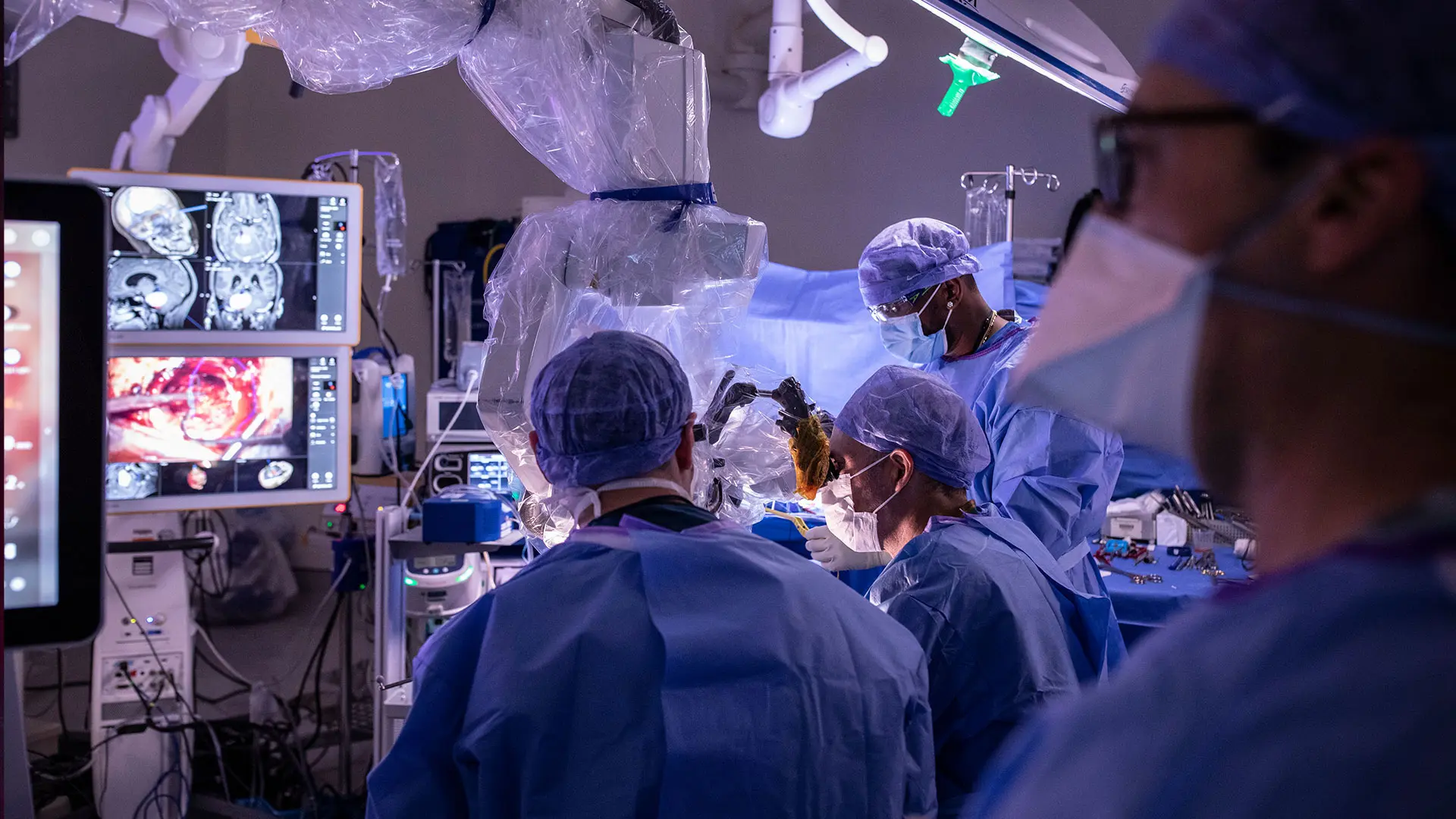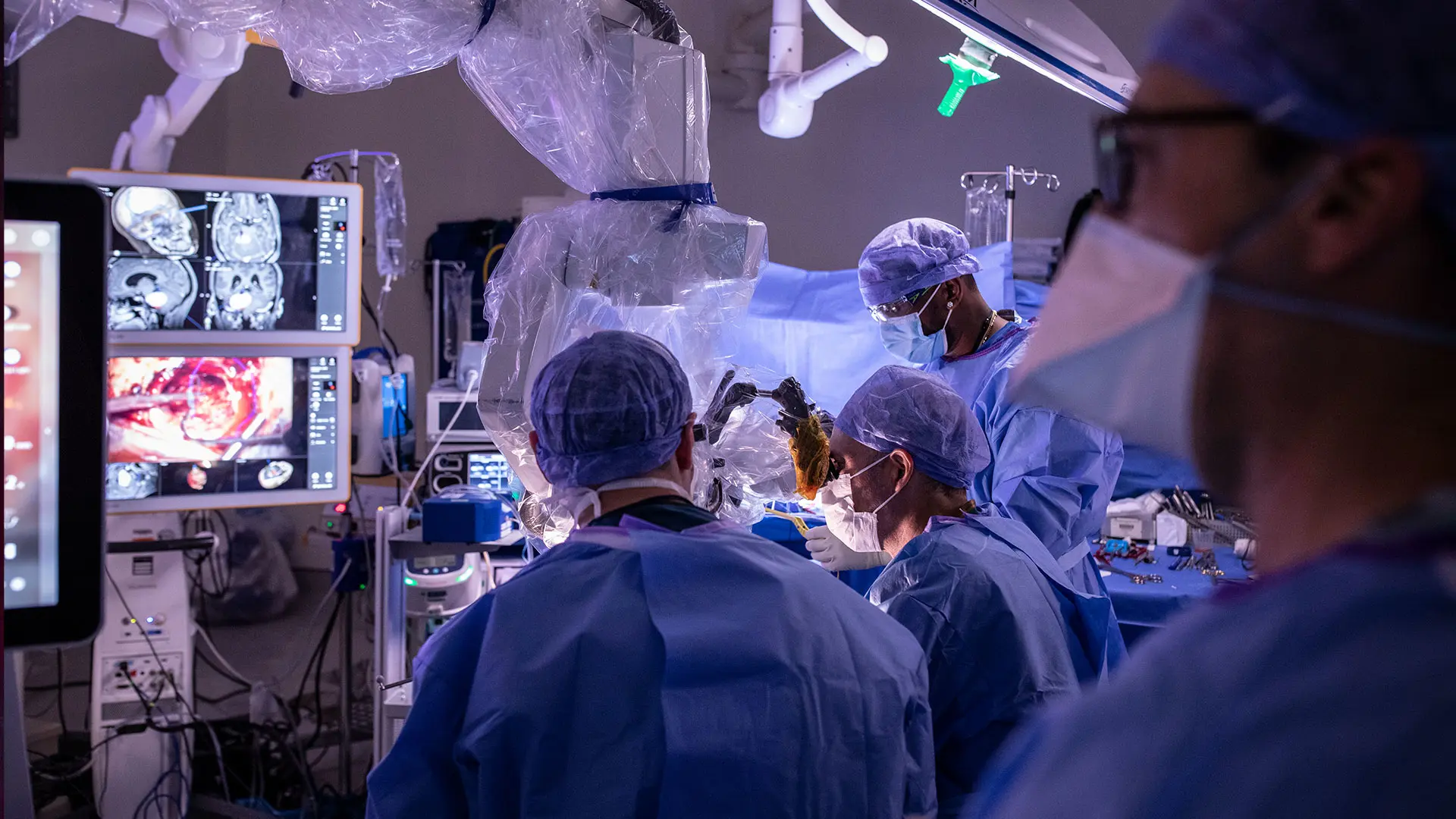The Mount Sinai Hospital’s Departments of Neurosurgery and Neurology were top performers in 2021-2022, in both U.S. News & World Report rankings and Newsweek’s rankings. U.S. News & World Report ranked Mount Sinai’s adult neurosurgical and neurological care at No. 10 in the United States. Newsweek, which lists each specialty separately, ranked Mount Sinai’s Department of Neurosurgery at No. 8 and Mount Sinai’s Department of Neurology at No. 11 among the world’s best specialty hospitals.
Many elements contribute to the success of both high-volume disciplines. Under the leadership of Joshua B. Bederson, MD, Leonard I. Malis, MD / Corinne and Joseph Graber Professor of Neurosurgery and System Chair, the Department of Neurosurgery recruits the finest talent, has expanded specialized clinical programs and created sub-specializations, improved access to care, emphasized careful follow-up during recovery, and advanced operating room technology.
Advanced digital technologies in the neurosurgery operating room enhance accuracy for even the most skilled surgeons. To that end, Mount Sinai employs its own engineering team and partners with industry to use the latest advances in patient care. One example is the use of augmented reality with navigation-based microscope integration, which improves safety during complex brain surgeries. Another example is Mount Sinai BioDesign, which was established in 2018 as an incubator for innovative surgical device creation, where our surgeons partner with bioengineers to create new solutions and devices that help treat complex neurological and neurosurgical conditions.
Mount Sinai BioDesign is an incubator for surgical device creation.
Mount Sinai’s Department of Neurology, under the leadership of Chair Barbara Vickrey, MD, MPH, the Henry P. and Georgette Goldschmidt Professor of Neurology, blends personalized care for its patients with groundbreaking research and the use of the latest technology to improve patient outcomes. The Department’s fellowship training programs encompass a range of subspecialties that include multiple sclerosis, Parkinson’s disease, stroke, epilepsy, headache, neuropathies, brain and spinal cord tumors, and dementia.
Over the past five years, National Institutes of Health (NIH) funding for the Neurology Department has increased about two-and-a-half-fold. In 2020, the Department ranked No. 14 in NIH funding, with grants totaling more than $18.8 million. Some of the Department’s work also focuses on a large, collaborative, neuroCOVID program, which examines neurological outcomes and complications among patients who have had COVID-19.
The following are recent examples of Mount Sinai’s innovative neurological research:
Ilana Katz Sand, MD, led the first study to establish an association between MRI metrics and diet factors in multiple sclerosis, which may have implications for slowing disease progression.
Jessica Robinson-Papp, MD, MS, and Mary Catherine George, PhD, are using a novel platform that tests several agents at the same time to see whether they combat diabetic neuropathy.
Leif Havton, MD, PhD, and his lab have created a novel and useful tool to determine the size and myelination of segmented nerve fibers in light and electron microscopy.

Through the use of novel technologies developed at Mount Sinai or in collaboration with industry partners, Mount Sinai’s neurosurgeons have access to progressively advanced pre-, intra-, and postoperative tools to produce better patient outcomes.
